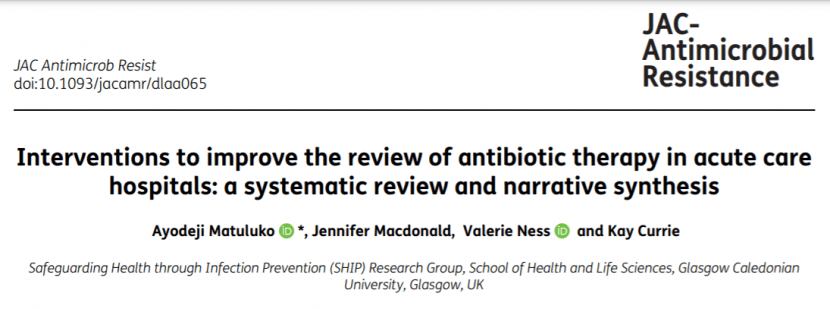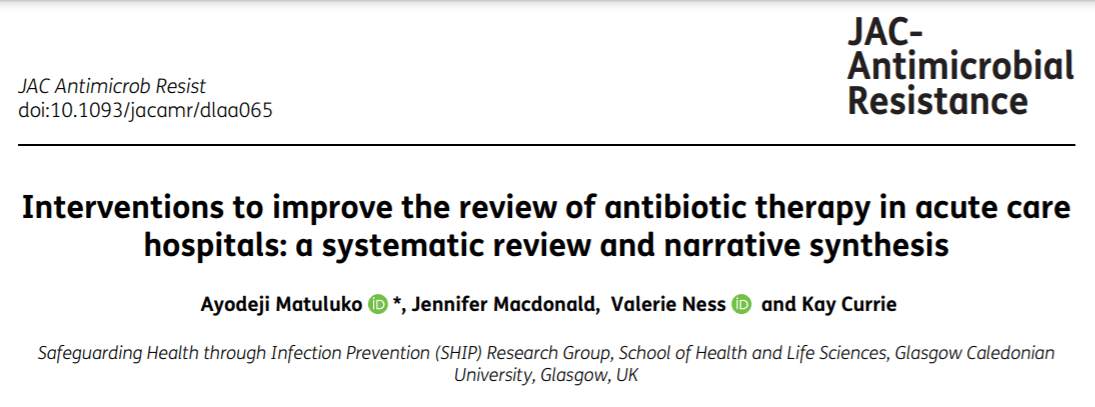In a recently published systematic review by SHIP team PhD Student, Ayodeji Matuluko, interventions to improve the review of antibiotic therapy in acute care hospitals have been found to have positive clinical impact in the short to medium term, although there is insufficient evidence of their sustainability in the long-term.
The timely review of antibiotic therapy is an important aspect in the pathway of antibiotic prescribing with immense benefits, which include shortened patients’ length of stay in hospitals, reduction in the incidence of complications from the administration of intravenous (IV) antibiotic therapy (e.g extravasation and phlebitis), reduction in morbidity and mortality, as well as reduction in antimicrobial resistance rates. It has been found that during admission 89.3% of the antimicrobials which at least a third of inpatients receive are IV antibiotics. In spite of the evidence showing the benefits of the early review of IV therapy and shorter durations of overall antibiotic therapy, antibiotic review is not implemented effectively.
In this systematic review— conducted by searching five electronic literature databases, the evidence for the effectiveness of interventions in improving the review of antibiotic therapy was synthesized. A total of 14 studies were identified with majority reporting that interventions to improve the review and/or the documentation of the duration of antibiotic therapy were effective. The most common intervention strategies employed were clinical practice guidelines, audit and feedback, and educational materials.
While intervention delivery was mostly done by Physicians and Pharmacists, the role of Nurses in carrying out these interventions was not clearly highlighted in the studies. Most intervention strategies were implemented in high income countries with little evidence found for implementation in low- and middle- income countries. It was also found that there was a lack of the application of theory in intervention design and evaluation. The review authors recommend that future research could consider the application of theory to intervention design and detailed specifications of interventions, employing tools from the behavioural and social sciences and giving consideration to tailored implementation in different contexts.

Working in collaboration with experts from the Scottish Antimicrobial Prescribing Group (SAPG), Ayodeji’s PhD study aims to investigate the feasibility and acceptability of antimicrobial stewardship (AMS) interventions in Scottish acute care hospitals, using an Implementation Science approach. Ayodeji is supervised by Professor Kay Currie, Dr Jennifer MacDonald and Dr Valerie Ness.
The full text of the paper is available open access here: https://doi.org/10.1093/jacamr/dlaa065
To find out more about the SHIP team, head on to the GCU website, read the rest of our blogs and follow us on Twitter @SHIPGCU

